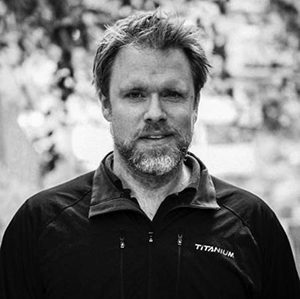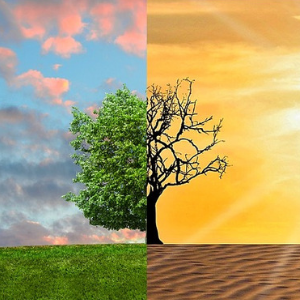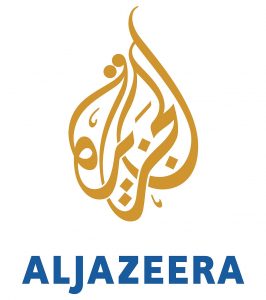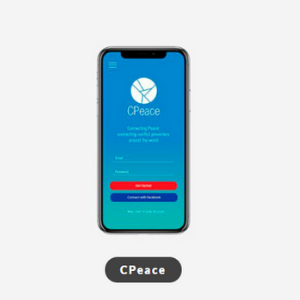
Organized crime in the Amazon: Illegal mining hotspots
A new form of organized crime has recently been emerging in the Amazon: illegal mining. Miners fell trees, use high-grade explosives to oblast soils and dredge riverbeds.

A new form of organized crime has recently been emerging in the Amazon: illegal mining. Miners fell trees, use high-grade explosives to oblast soils and dredge riverbeds.

The future feels more threatening and ominous than ever. The sense of doom and gloom is deepening, not least in the West.

The greatest wave of democratisation in history is receding – and crime and violence are to blame. Latin Americans were among the most devoted converts to democracy in the late 20th century.

The 2019 Pritzker Forum on Global Cities takes place in Chicago June 5 through 7.

Robert Muggah talks to the BBC’s Newshour about the recent killings inside the prisons on the Brazilian state of Manaus.

Once again, Brazil’s hellish prisons are making global headlines. The spotlight this week is on Manaus, the capital of the country’s northern Amazonas state, where violence at different prisons left 55 inmates dead.

There is growing evidence that climate change can increase the risks of conflict and violence.

One of the world’s most homicidal countries just registered the sharpest overall decline of lethal violence in its history

Brazilians have an uneasy but enduring co-existence with homicide. Over 1,060,000 of them have been murdered since 2000.

Gun makers and military industry companies from all over the world gathered in Rio de Janeiro for Latin America’s largest defense and security fair Tuesday, hoping to benefit from Brazil’s new far-right administration and President Jair Bolsonaro’s vow to loosen gun laws.

Robert Muggah, diretor de pesquisa do Igarapé, falou à BBC sobre mudanças climáticas e sua influência na violência.

Apresentação do diretor de pesquisa do Instituto Igarapé, Robert Muggah, no World Governance Forum.

Brazil has an uneasy co-existence with homicide. At least 1,060,000 Brazilians have been murdered since 2000.

What’s the effect of temperature rising on conflicts at world’s most vulnerable areas?

Last week, two gunmen opened fire at a high school near Sao Paulo, killing eight people, including five schoolchildren

Ilona Szabó de Carvalho is the cofounder and executive director of the Igarapé Institute, a think and do tank based in Brazil and a cofounder of Agora, an initiative to promote and implement more effective public policy.

The world is less violent today than at virtually any other time in human history. Hard as it is to believe, deaths from armed conflicts between states have declined dramatically since the 1950s.

The United States will withdraw all remaining staff from its embassy in Venezuela, according to a late-night March 11 announcement by Secretary of State Mike Pompeo on Twitter, who cited the “deterioriating situation” there.

As the world’s largest terrestrial carbon sink, the Amazon is a key front in the fight against climate change

Global cooperation is at a crossroads. Many of the world’s biggest challenges are not a result of disagreements about how to cooperate, but a profound loss of direction about why to cooperate in the first place.

Religious violence is undergoing a revival

in a country plagued by rising levels of violent crime, the sentiment is widely popular with voters — and reflected in government policy

Brazil has a crime problem. It is the country with the most homicides in the world, registering almost 64,000 last year—seventy-three percent of which involved guns

A wave of violence that has swept across the state of Ceara in the last three days has led Brazil’s newly appointed Minister of Justice Sergio Moro to immediately send 300 National Public Security Force officers to the region

Faced with an epidemic of homicidal violence and relentless corruption, newly elected governments in Latin America have unveiled ambitious crime reduction plans

Brazil’s new president, Jair Bolsonaro, is making good on a campaign promise to loosen the country’s gun laws.

New research published by the International Committee of the Red Cross (ICRC) has established a relationship between a changing climate and conflict, leading to increased migration.

That’s a wrap for day three at this year’s Annual Meeting in Davos. From the future of Europe and fighting to save our oceans to Jack Ma’s career tips and Prince William opening up about mental health, it was another packed day of sessions.

This idea has gained momentum as Peru, Bolivia and Brazil join forces to build a corridor that would stretch over 3,800 km from the port of Santos, in Brazil, across Bolivia to the port of Ilo, in Peru.

On October 9, Igarapé Institute partnered with the International Peace Institute (IPI) to host a seminar held across the street from the UN secretariat, in New York. The event, titled “Harnessing Technological Innovations for Conflict Prevention,” brought together approximately 30 senior UN officials, diplomats from

O Instituto Igarapé utiliza cookies e outras tecnologias semelhantes para melhorar a sua experiência, de acordo com a nossa Política de Privacidade e nossos Termos de Uso e, ao continuar navegando, você concorda com essas condições.

